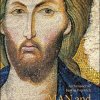Гласање у епохи Васељенских Сабора
Акта Сабора као извор теологије саборности
Епископ Максим Васиљевић
Универзитет у Београду - Православни богословски факултет
Кључне речи: сабори, акта, предање, гласање, потписи, представништво, већина, консензус, епископи, саборност
...πρὸς τὸ τελείαν γενομένην Σύνοδον, οὐκ ἐν ποιότητι ἀριθμοῦ,
ἀλλ᾽ ἐν ποιότητι γνώμης, ἀναμφίλεκτον ἐξενεγκεῖν ψῆφον
(Паладије, Дијалог, PG 47, 14)
Апстракт: Увид о начину гласања у епохи Васељенских Сабора открива богословску истину о епископу који захваљујући своме месту у Евхаристији уједињује локално и универзално. Сабори су место које видљиво показује на који начин је епископска служба (и његова локална евхаристијска заједница) повезанa са остатком евхаристијских заједница у свету. Разматрање праксе гласања на саборима показује да број учесника никада није био пресудан за његов значај и рецепцију; не стоји гледиште да су сви епископи (било када) позивани на Васељенске саборе. Принцип један епископ – један глас није важио као апсолутан. Потписи су имали више симболичну (што није мало), неголи суштинску улогу. Гласање на саборима је било углавном детерминисано гласом и ставом поглавара или председника делегација помесних Цркава. У еклисиологији која се руководи законима евхаристијске саборности, кључно је било препознавање једног епископа (најчешће митрополита или предстојатеља најшире географске области). Непотписивање саборских одлука (или противљење истим) од појединачних епископа није утицало на коначни исход Сабора и његову рецепцију. Коначно гласање најчешће није било неопходно. Овако схваћено саборско предање указује на пресудни значај црквенопредањске улоге и одлуке већине. За један саборно-католичански синод није пресудна бројчана заступљеност него аутентичност.




